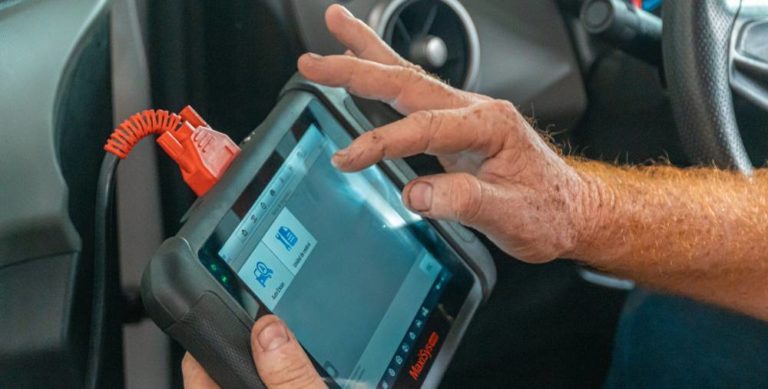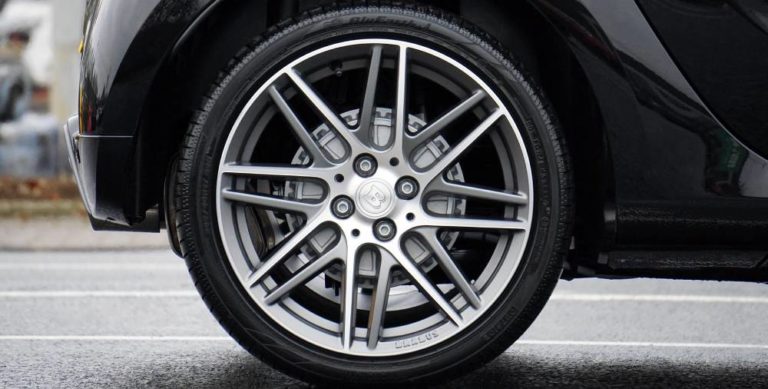Symptoms of a Failing or Bad Fuel Filter
This post may contain affiliate links. That means if you click and buy, we may receive a small commission (at zero cost to you). Please see our full disclosure policy for details.
A car can give off several warning signals. Stuttering, difficulty starting, coughing up bad smoke, and many more are signs you may want to brace yourself for some of the symptoms of a bad or failing fuel filter. The list is endless.
To be genuinely car-savvy, or at least passably knowledgeable, you can read through great information here. It is also a good idea to match specific symptoms with the working dynamics of certain parts of the car.
A failing fuel filter in a car will experience signs or symptoms such as a damaged fuel pump, Poor Fuel Consumption, a hard start, and loss in engine power. In this article, we will learn more about the different types of symptoms and what exactly the function of a fuel filter is.
This post answers some questions about what signs to look for when your vehicle has a bad fuel filter. Let us examine the role a fuel filter plays in a car and its working mechanisms.
What Function Does a Fuel Filter Perform?
A fuel system is a combination of different parts -filter, line pumps, injectors, or carburetors- that work to ensure that when the engine needs fuel, it draws upon the fuel into the engine to mix with air and then burns to produce energy.
As the name filter suggests, the fuel filter serves to separate impurities in the fuel to ensure unwanted particles do not get into the engine. If allowed into the engine system, even the tiniest rust particles can cause undue stress on the car’s engine. Therefore, it necessitates the use of a fuel filter.
The filter is usually located at the fuel pump’s connection and the fuel line that transports the fuel into the engine. By its very nature, it gets clogged up easily, thus impeding the flow of fuel into the engine. When this happens, the car gives some warning signals.
Symptoms of a Failing Fuel Filter
A Hard Start
A clogged fuel filter makes it difficult for the engine to start up. It is smart to rule out other causes of a hard start, such as a bad battery, first. Once other causes have been ruled out, attention can be turned to the fuel filter. As the car is about to start up, it needs a huge draw on fuel. If the quantity available is low, it makes it difficult for the car to start up. It will take several trials before the car finally starts up. It may eventually fail to make it impossible for the car to start up at all.
Loss in Engine Power
One sure way to ascertain a clogged filter is in the loss of engine power. When circumstances demand increased power from an engine, and it falls short, the most likely cause is a clogged filter. During increased demand for power, say when a car climbs up a hill or even accelerates, if the engine cannot produce enough energy, it may be due to reduced fuel quantities getting inside the engine. A clogged filter allows only a limited quantity of fuel to flow through it.
Poor Fuel Consumption
It sounds ironic that a reduced flow of fuel will actually lead to more gas being expended, but with a clogged filter, that’s exactly what happens. With reduced quantities, the fuel pump is made to pump faster thus causing more fuel to be consumed.
Damaged Fuel Pump
If the demand for the fuel pump to produce more fuel continues, it eventually leads to the fuel pump being damaged. The fuel pump serves the same role the heart plays in the body. Once you find out that the fuel pump no longer pumps fuel to the carb, quickly find out what is wrong with your fuel filter. The problem and solution may be right there.
Frequently Asked Questions
Q: Can a bad filter cause a car to jerk?
Yes. It is necessary to rule out the temperature first as a cause of the jerking. However, most times, a jerking car results from a clogged fuel filter. The truth is that a bad filter can destroy your vehicle completely if not attended to as soon as you discover the fault. At the first sign of some of the symptoms of a bad fuel filter, it is best to have your car taken in for a workup.
Q: What happens if the filter is not changed?
Analogously, what happens if the human kidney begins to deteriorate or stops functioning? Remember, the kidney is responsible for cleaning the body and keeping off the dirt from it, the same way the fuel filter sanitizes your car engine. You can begin to self-answer now.
Dirt degrades the proper functioning of the piston and rings, and so damages the engine. In short, it is never a good idea to have all kinds of dirt, pebbles, deposits, and particles in the engine. In time, your filter will cause irreversible damage and wear out your vehicle.
Q: How often should you change your fuel filter?
The industry rule of thumb for older model vehicles is that you should replace your fuel filter after 2 years or 30,000 miles of use. You can choose to work with either the year or mile, depending on which one comes first.
However, newer car models can go on for longer. Whether the new or old model, there is a thin line between the extended lifespan of a fuel filter and maintenance. Great maintenance guarantees the quality of life for your fuel filter. Otherwise, your car’s fuel filter may suffer early damage.
Final Thoughts
The function of a fuel filter is essential to the proper running of your car and the overall proper functioning of the vehicle’s internal and external systems. The blunt truth is that a bad fuel filter is bad for your vehicle.
You shouldn’t have to wait until your vehicle develops a fuel filter issue before you take it out for inspection. After a long-distance drive during which your vehicle must have suffered severe damage from bad roads, potholes, bumps, and jumps, you should have it inspected. Summarily, it’s always a good idea to get a fuel filter fixed by a professional auto repairer as soon as possible.
Read More
- What Causes Backfire Through Intake?
- Waxing Car Windows: Is It Worth It?
- Transfer Case Fluid: How Often & What Is It?
- Rubbing Compound: What Is It & How To Use
- Gear Shift Stuck: A Complete Guide
- Symptoms of a Failing or Bad Fuel Filter
- P0700 Trouble Code: A Complete Guide
- Engine Misfire Symptoms: What Is It & How To Fix
- Driving With Tire Bulge: Causes & Is It Safe?







